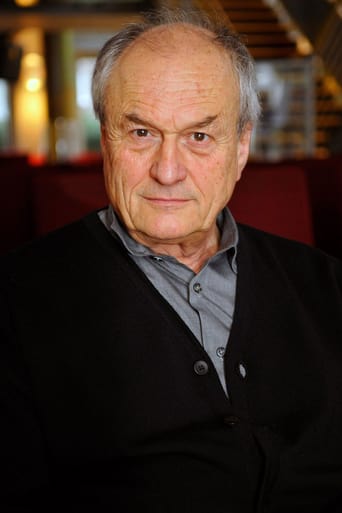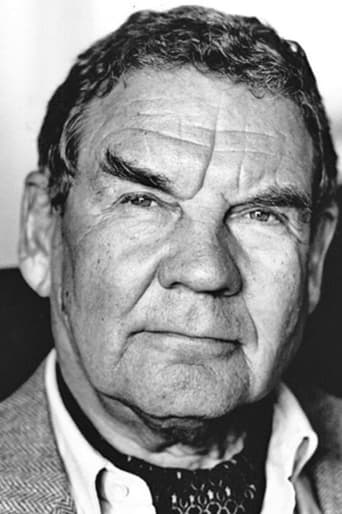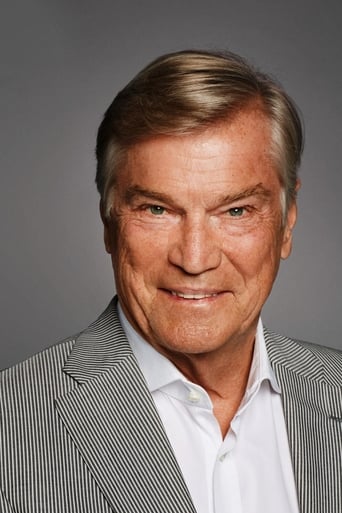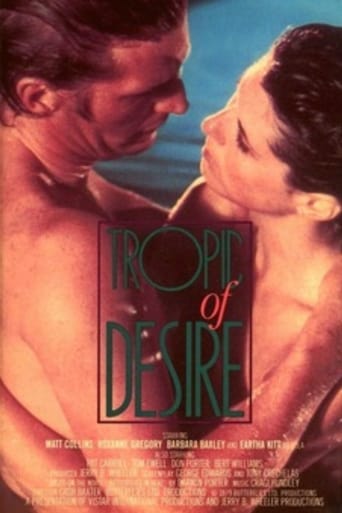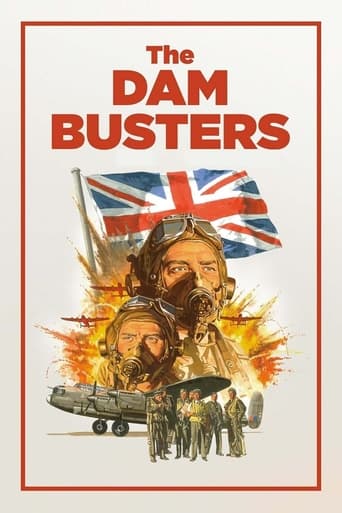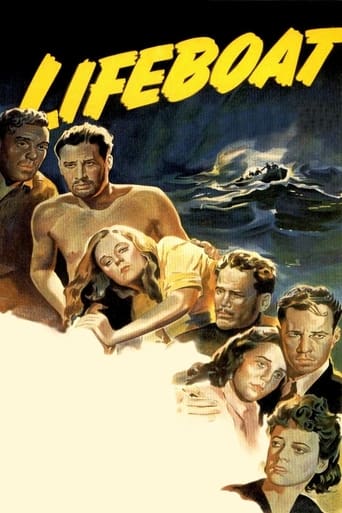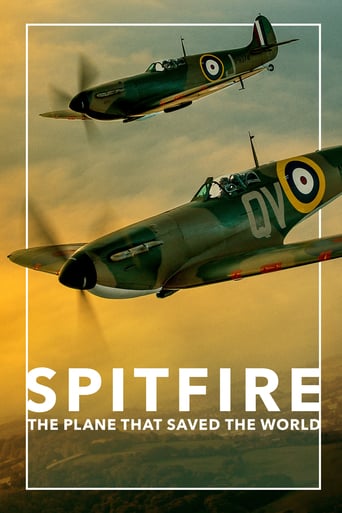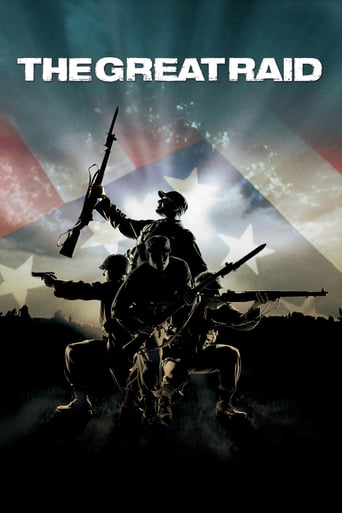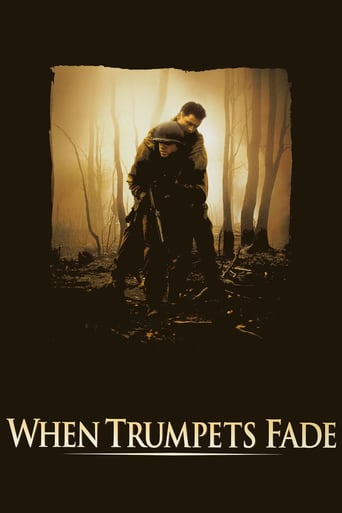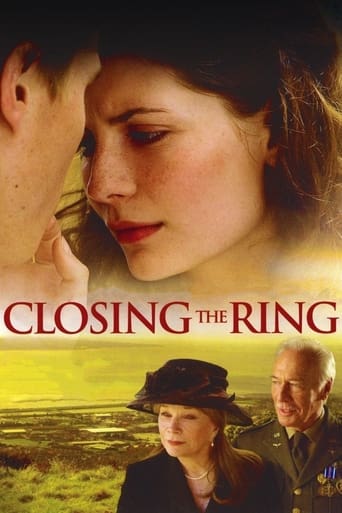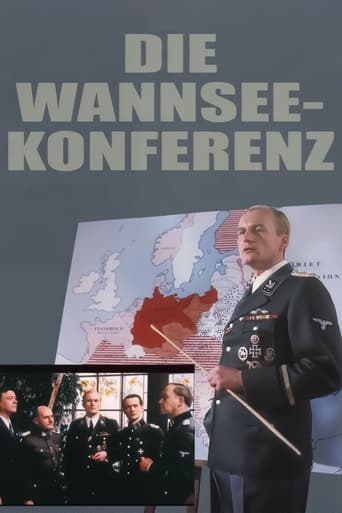

The Wannsee Conference (1984)
A real time recreation of the 1942 Wannsee Conference, in which leading SS and Nazi Party officals gathered to discuss the "Final Solution to the Jewish Question". Led by SS-General Reinhard Heydrich, the Wannsee Conference was the starting point for the Jewish Holcaust which led to the mass murder of six million people.
Watch Trailer
Cast


Similar titles
Reviews
If you have ever wanted to see an autopsy into true and pure evil, this is it. Without gore or special effects, this is a study in the planning of one of the largest mass murders in the history of mankind.It's a truer and purer horror story than Freddy Krueger and Hannibal Lecter ever could possibly dream up. This is the horror created by seduction. It tells how the few create consensus among the weak, greedily upwardly mobile bourgeoisie who let themselves be pulled along down into darkness.While the particulars describe one particularly well documented episode of evil, the players and actions could unfold anywhere and any time. Just look at the actions of our own government today.
I was able to see this film at a film festival, where the director spoke afterward about how the film was created. As I had suspected while watching the film, the source for the script was not just the minutes of the meeting, which mention very little of the detailed discussions which occurred that day, but as well what the director called the "Eichmann protocol," that is, transcripts of the interviews conducted by the prosecutors at Eichmann's trial in Jerusalem. Grupenfeurher is correct when he says that the minutes of the conference never mention extermination. But Eichmann's later, extensive, comments prove that that is precisely what was being discussed. For a detailed look at the conference, the best place to begin is Mark Roseman's book, "The Villa, the Lake, and the Meeting: Wansee and the Final Solution." But there are also comments noted in Goebels' diary, and interdepartmenal memos from those who were invited to the conference itself, and much other evidence besides. A good discussion of the process leading to the genocide can be found in Christopher Browning's "Origins of the Final Solution," and a more abbreviated discussion in volume two of Ian Kershaw's biography of Hitler, "Nemesis."
This meeting in January, 1942, of 14 Nazi officers and bureaucrats was chaired by Himmler's golden Aryan and arrogant SS protégé, Reinhard Heydrich. The conference took place in the Berlin suburb of Wannsee. In 84 minutes, the mechanics and coordination of the final solution, the murder of millions of Jews, men women and children, was agreed upon. The film is based on records and minutes kept of the conference, spoken by unnervingly convincing actors in carefully reconstructed surroundings and wearing meticulously authentic uniforms. The film runs 84 minutes, the exact time of the conference. It captures the bantering and pleasantries and casual racist jokes, and the bureaucratic trade-offs. The buffet lunch is excellent and the cigars and brandy are prime. The bullies, the bean counters, the bureaucratic time servers, the power brokers, the slightly worried, the professional toadies, the back-slappers and the paper shufflers are there, representing their key departments of the Nazi party, the SS and the government. The orders, Heydrich tells them, have been given. Now the organizers and expediters must agree and take appropriate action...how do we mobilize sufficient transport...what are minimum feeding requirements...what methods should be employed that will yield the most efficiencies? It is clear that Heydrich is a leader to be reckoned with, and that he is expecting results. It is equally clear that he will get his results. For those at this conference, the final solution is a problem of logistics and disposal, to be dealt with crisply and solved with German thoroughness. And if a Nazi faints during a mass execution of Jews? "It shows we Germans are human," says Heydrich with a pleasant smile. This German television reenactment of the Wannsee Conference, directed by Heinz Schirk with a disturbing performance of charm and calculation by Dietrich Mattausch as Heydrich, is horrifying. Don't mistake this for the film, Conspiracy, which covers the same meeting but with a sheen of "this is meaningful drama" about it, especially with Kenneth Branagh's Heydrich. The Wannsee Conference is central to the plot of that fascinating thriller, Fatherland, by Robert Harris. Here, Germany won the war. It's 1964 and President Joseph P. Kennedy will visit Berlin to celebrate Adolph Hitler's 75th birthday. An honest German cop and an American news reporter are going to make a terrible discovery. The book is first-rate. The television adaptation of Fatherland is less so, but it has its moments.
Far above the bathetic histrionics of Kenneth Branagh in the recent "Conspiracy", this crisply chilling, almost real-time reenactment is among the most convincing works of historical evocation on celluloid.Not so much because its overall interpretation is historically valid: as I noted in my review of "Conspiracy", there are grave doubts whether the Wannsee meeting can bear anything like the watershed significance historians imputed to it between c. 1960 and 1980. More recent research has pointed to the Conference being more or less what the one remaining "Protokoll" (summary minutes) stated: a second-level pow-wow of bureaucrats to arrange for the deportation of Jews to the German-occupied East, not a master plan for their destruction cooked up by leading Nazis.But that is by the way. "Wannseekonferenz" ably conveys the peculiar ethos of German (by no means all Nazi) officials and soldiers in the pivotal years of World War Two, when the nation seemed to be on top of Europe but was already getting jitters about its staying power. As the Interior Ministry's moderate Dr Stuckart, between wipes of his nose, points out: neither the British Empire nor the Soviet Union has yet been defeated, America is about to join in (the date is a month after Pearl Harbor) and there is danger in sweeping assimilated Jews and mixed-race people out of the Reich. Some will escape to become mortal enemies of it when they might be co-opted. Other participants crudely call for total banishment of Jewry from the Altreich and the Polish "Generalgouvernement", grumbling about disease; but there are war-production and morale arguments on the other side, and the uniforms who start by seeming to spring wholesale evacuation on the suits as a fait accompli- Heydrich and "my Jewish consultant, Eichmann"- are willing to ponder exemptions.All this is a far cry from the Goldhagenesque "eliminationist antisemitism" uncritically portrayed in "Conspiracy". The German film is a more plausible picture of the clashes and compromises, the tired banter and one-upmanship, the relief of dirty jokes and the solemn courtesies one would expect of a gaggle of Teutonic bureaucrats who don't feel as assured of victory as they have to pretend. The film is little more than facial expressions and dialogue, batted to and fro across the table; but every actor is right inside his part. The sense of a warped community is potent, and the prowling encirclement by Heinz Schirk's camera reinforces this solidarity instead of just trying to fluff up the monotony of a bunch of men (and one shockable stenographer) talking.Dietrich Mattausch looks far more like the real Reinhard Heydrich- tall, elegant fencer and violinist with a streak of treachery- than stocky little Branagh. His unfailing politeness, with a hint of cold steel underneath, is more convincing than Branagh's Demon King. This man knows what he wants, but his chairmanship is skilfully emollient.Gerd Bockmann's Eichmann is assiduous and dispassionate like the real Adolf E, who had no great personal animus towards Jews but was determined to get ahead in his sordid profession of "dispatcher". Peter Fitz as Stuckart, the Jonah of the gathering, hints at distaste for the whole business while manfully arguing a pragmatic case for letting sleeping dogs lie. Among the smaller parts, Martin Luttge as Major Dr Rudolf Lange- intellectual turned persecutor in an SS Special Action Group- stands out for his affectation of rough, half-reluctant practicality, telling civilian papershufflers the score.Inevitably a few embroideries have crept in: Heydrich's pursuit of the secretary, Lange's dog, the contemptuous anecdote about the Papal Nuncio. As if tacitly admitting the lack of hard evidence for orchestrated genocide from the minutes, the screenplay chucks in a throwaway line: Heydrich speaks of finding a new way of killing Jews fast by "learning to take the Fuhrer literally". Stuckart tells Dr Kritzinger that this refers to a "Mein Kampf" passage about how the Great War could have been won if subversive, high-ranking German Jews back home had been held under poison gas. We are supposed to infer a whiff of Zyklon B from this; but as is clear in context, Hitler meant that those Jews should have had to inhale British poison gas as front-line soldiers, like himself.Such gaseous garnishings were probably required to make the film an accepted part of the curriculum in the guilt-ridden German system of historical re-education. But they do not seriously detract from this superbly atmospheric chamber piece.


